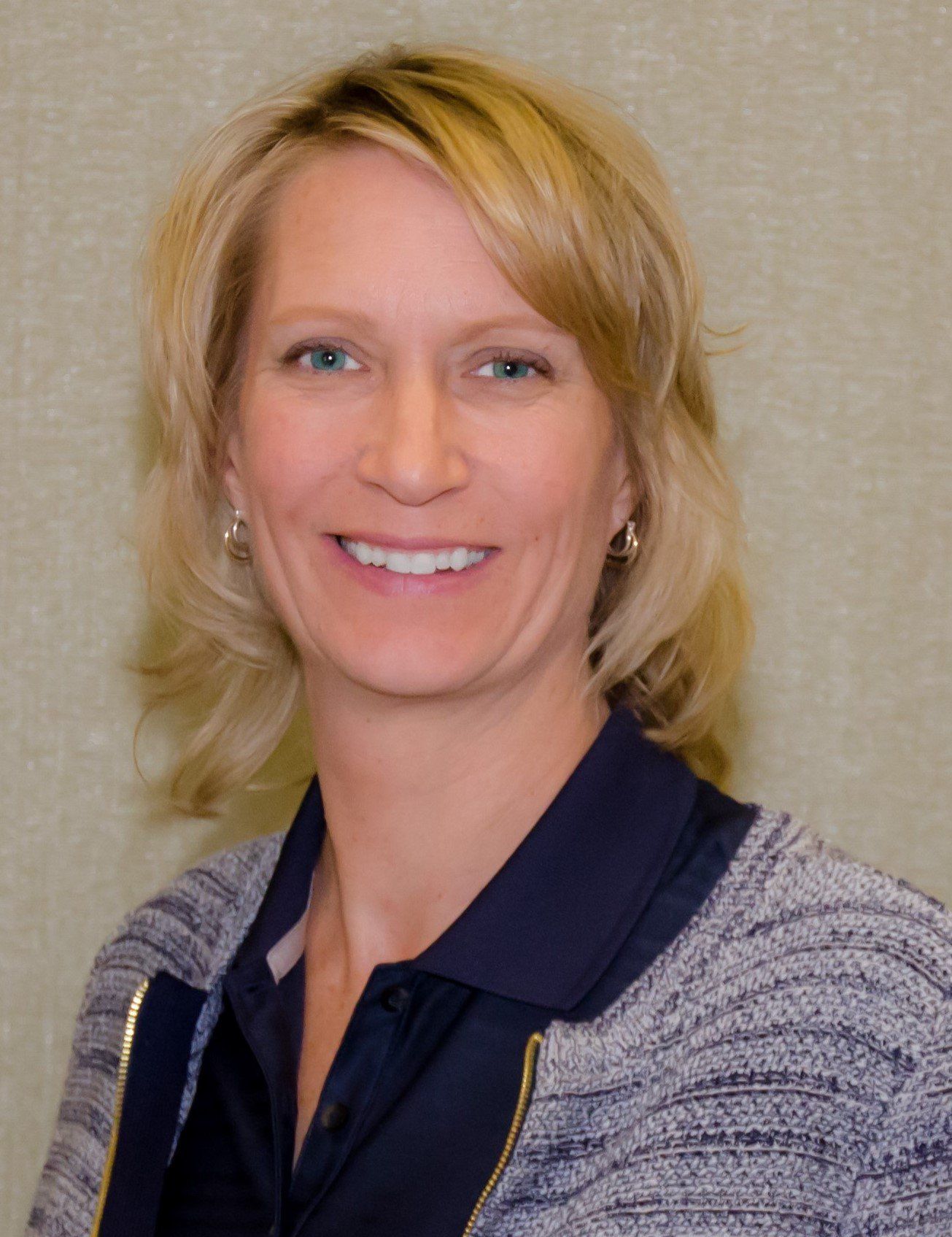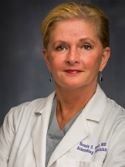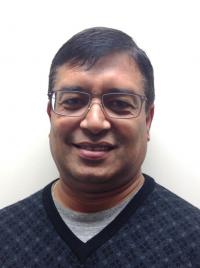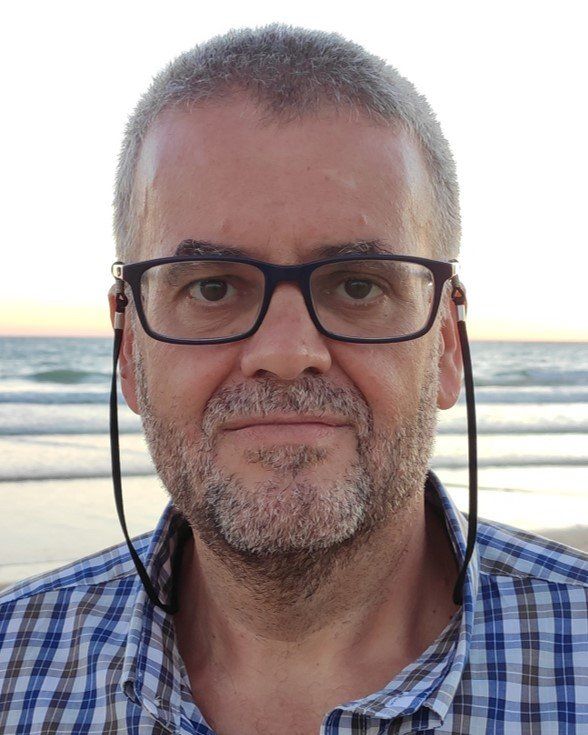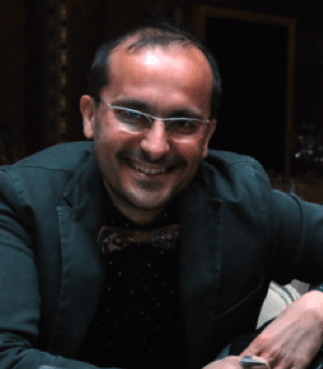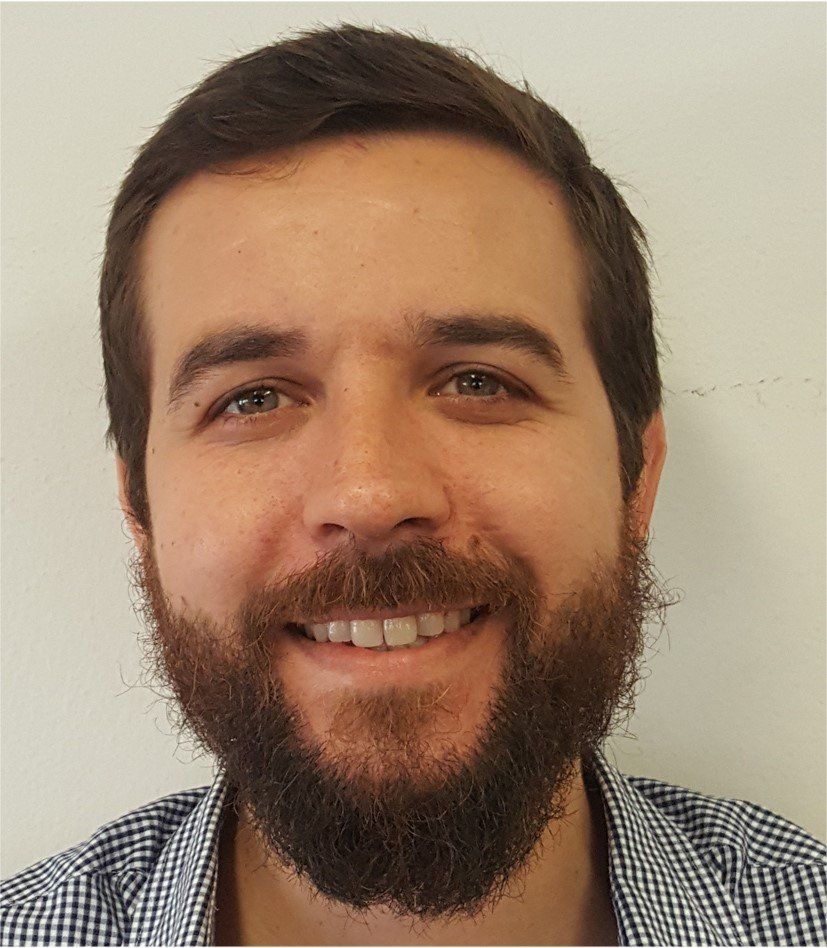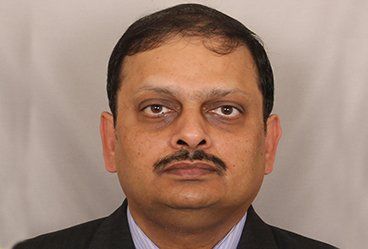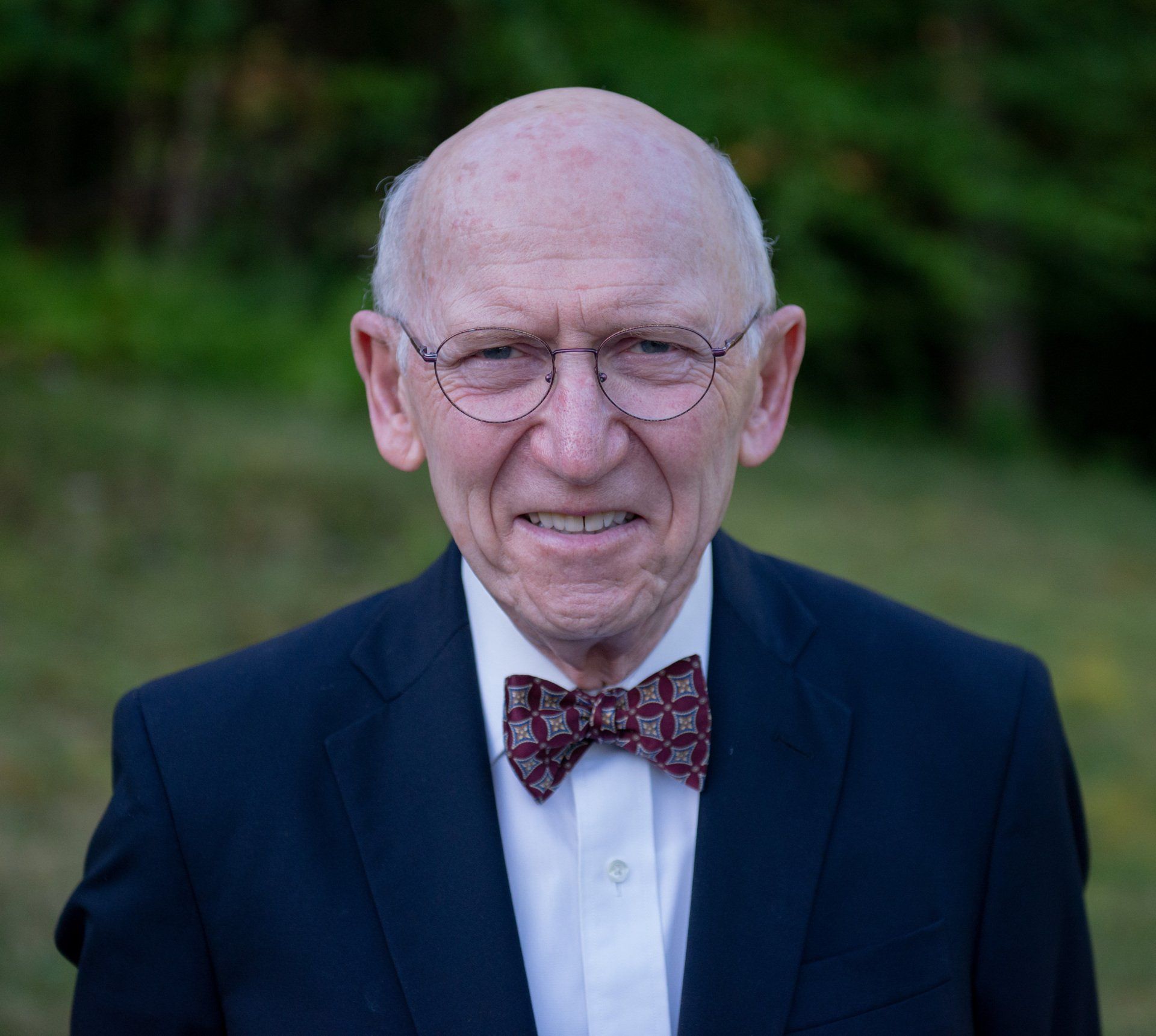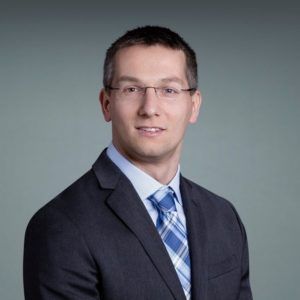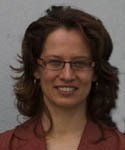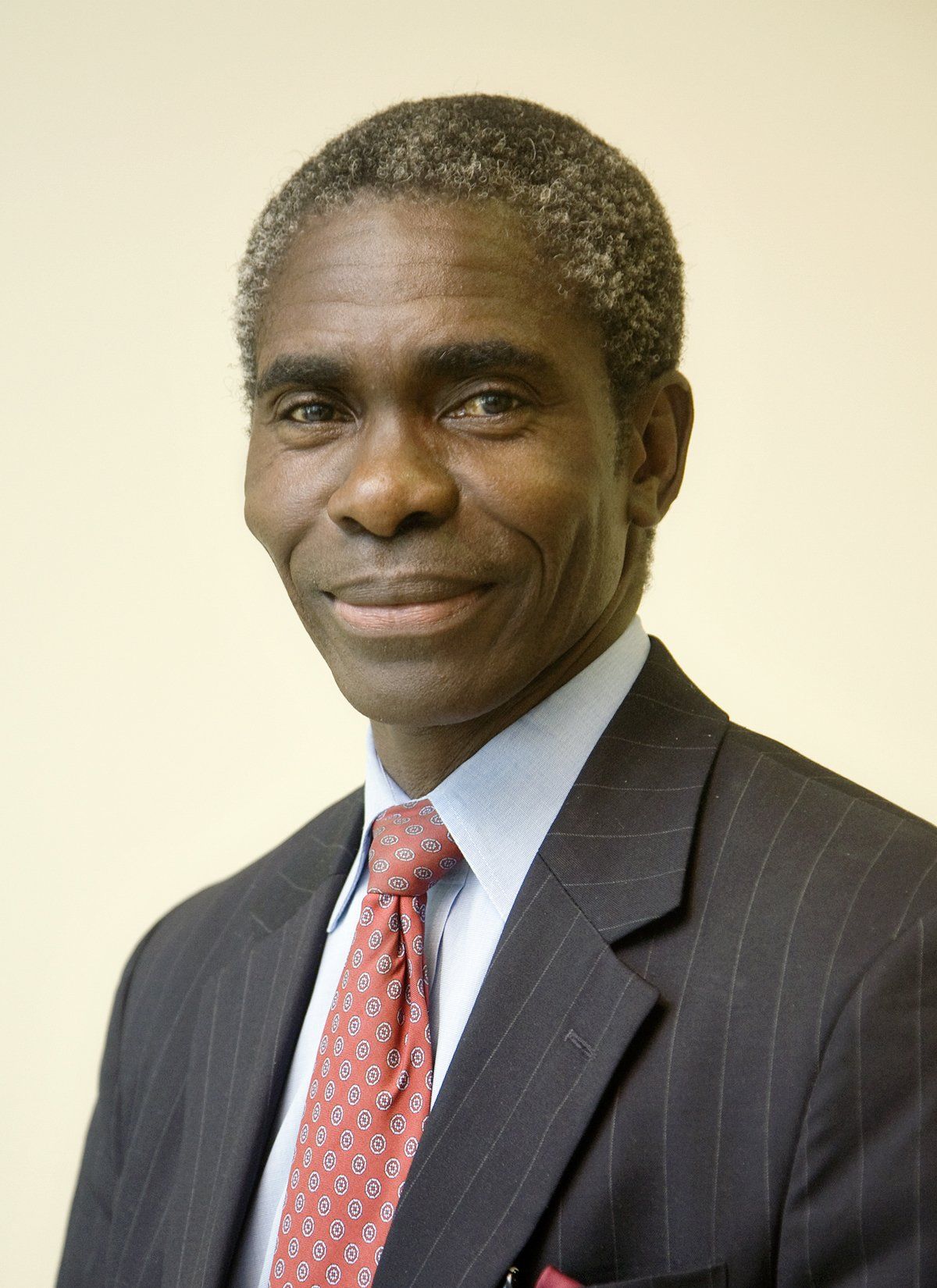Presenters & Session Topics
Olavi Airaksinen, MD
Professor of Physical and Rehabilitation Medicine University of Eastern Finland; and Medical Director Kuopio University Hospital
Research areas and publications concerning of the following topics: pain management, treatment of oedema, diagnostics and treatments and outcomes of low back pain, diagnostics and treatment of sports injuries and the use of surface EMG as measurement of muscle fatigue and muscular activity.
Presentation:
Friday, June 24th, 2022 @ 3:20 pm - 3:50 pm
Long Term Results after Spinal Stenosis Surgery
Wolfgang Bauermeister, MD, PhD
Kharkiv National Medical University, Ukraine
Dr. Bauermeister is Professor of Physical Rehabilitation and Sports Medicine at the Kharkiv National Medical University, Ukraine and director of the Pain Institute Munich, Germany. He specialized in Physical Medicine and Rehabilitation at Tufts Medical Center, the principal teaching hospital of Tufts University School of Medicine, Boston, MA, USA in 1988. In the US he pioneered Laser – Therapy for myofascial pain problems in Sports and Pain Medicine. Over the past twenty years his research focused on the development of Triggerpoint Shockwave Diagnosis and Therapy and Ultrasound-Elastography to assess the stiffness patterns of the fascia and the muscles related to myofascial trigger points, fibrosis and densification and their role in pain referral. As a consequence of his research he bases his clinical treatment strategies on the findings of the Ultrasound Elastography. In 2021 he received an award for his work, treating Chronic-Widespread-Pain – Fibromyalgie with repetitive Peripheral Magnetic Stimulation based on the findings of Ultrasound Elastography. He contributed a chapter on imaging techniques using Ultrasound-Elastography in the book Fascia in Sport and Movement, edited by R. Schleip, J. Wilke and A. Baker, published 2021.
Presentation:
Friday, June 24th, 2022 @ 5:30pm - 5:50pm
Trigger Shock Wave Therapy and the Trigger Point Ultrasound Elastography
Course Description:
Shockwave treatment (SWT) is gathering more and more interest in several medical fields thanks to its regenerative and stimulating effect on tissues. This workshop is focused on SW application on myofascial tissue. It presents the basic principles of shockwaves, classification, biological effects and provides an introduction to the Fascial Manipulation method. Clinical examples and practical demonstrations will be provided. Finally, the participant will be asked to apply theoretical notions in practical activities.
Mary Biancalana, MS, LMT, CMTPT, Cert. Personal Trainer
Chicago, USA
Mary Biancalana, Owner & Director of Myofascial Trigger Point Therapy for Chicago Center of Myofascial Pain Relief, has excelled in the fitness and education field since 1983. A lifelong athlete and exerciser, Mary possesses a unique blend of skills and training that sets her apart. She holds a B.S. from DePaul University in Teaching Physical Education and a Master’s Degree in Education from Northeastern Illinois University. She also holds four State of Illinois teaching licenses and is an American Council on Exercise Certified Personal Trainer, a Nationally Board-Certified Myofascial Trigger Point Therapist, and a Licensed Massage Therapist.
Presentation:
Wednesday June 22nd, 2022 and Thursday June 23rd, 2022
Trigger Point Management
Course Description:
This workshop is designed to provide the participants with various skills and tools to reduce pain and improve function in patients with Myofascial Pain Syndrome and Fibromyalgia. Non-drug interventions will include various cutting edge electro-medicine devices, trigger point injections, hands-on manual therapy techniques and self-applied, home-care activities.
Barbara Cagnie, PT, PhD
University of Ghent, Belgium
Barbara Cagnie graduated in physical therapy (1999) and manual therapy (2001) at the University of Ghent and completed her PhD in 2005. She is currently full time associate professor at the department of Rehabilitation Sciences and physiotherapy, Ghent University. She is head of Education in Rehabilitation Sciences and Physiotherapy and head of the Postgraduate Training in Manual Therapy, Ghent University. Her topic of research and teaching expertise, as well as her clinical work, is the assessment and rehabilitation of patients with neck pain. In particular, her research focuses on the identification of underlying peripheral and central mechanisms in the development and/or maintenance of neck pain and the evaluation of clinical interventions within the different subgroups of patients with neck pain. She has published over 150 peer-reviewed papers in international journals, gives courses on a national and international level and wrote three books on exercise therapy and manual therapy in neck pain disorders.
Presentation:
Friday, June 24th, 2022 @ 5:00 pm - 5:30 pm
The Physiological Effects of Dry Needling: An Update from the Last Decade
Ernest Choy, MD, FRCP
Cardiff University School of Medicine, UK
Professor Ernest Choy is Head of Rheumatology and Translational Research at the Division of Infection and Immunity and Director of the Cardiff Regional Experimental Arthritis Treatment and Evaluation (CREATE) Centre at Cardiff University School of Medicine, Cardiff, Wales, UK. He is also Honorary Consultant Rheumatologist at University Hospital of Wales and Clinical Lead of the Welsh Arthritis Research Network (WARN). Prof Choy chaired the EULAR Taskforce on developing recommendations for management and classification criteria for fibromyalgia in 2007 and currently a member of the EULAR Quality of Care Committee. Prof Choy has served as clinical expert to the National Institute for Clinical Excellence in the UK and many pharmaceutical companies. He has published widely on treatments for rheumatic diseases in major medical journals such as the New England Journal of Medicine and The Lancet.
Presentation:
Saturday, June 25th, 2022 @ 8:30 am - 9:00 am
Management and Classification Criteria for Fibromyalgia
Raffaele De Caro, MD
Chair of Anatomy Department, University of Padua, Italy
Raffaele De Caro received Medical degree cum laude on 1980 in Padova. Specialisation cum laude in Pathology (Padova, 1984) and Legal Medicine (Padova, 1987). At the Medical School of the University of Padova Assistant Professor in Human Anatomy from 1981, Associate Professor from 1992 and Full professor from 2000. Director of the Department of Human Anatomy and Physiology from 2004 to 2011. President of the School of Medicine of Padova since 2007. Visiting scientist at University of Sheffield in 1988, University of Heidelberg (Germany) in 1990 for Plastination of human cadaver, at the "International School of Neuroscience", (Prof. E. Costa, G.M. Edelman e R. Levi Montalcini) in 1990, Italy. He personally made 3000 cadaver dissections for research and teaching. Author of 150 in extenso papers. Associate editor of Surg. Radiol. Anat., member of the editorial board of Clin. Anat. and reviewer for J Anat, Anat Record.
Presentation:
Opening Ceremony Auola Magna The History Of Padova University
Dr. Jim Fricton, MD
University of Minnesota, USA
In addition to his role as a Pain Specialist at the Minnesota Head and Neck Pain Clinic, Dr. Fricton is a Professor Emeritus in the University of Minnesota Schools of Dentistry, Medicine, and Public Health. He was trained in Dentistry at the University of Iowa and in Medical Anesthesiology and Pain Management at UCLA School of Medicine and started the Orofacial Pain Program at the University of Minnesota. He has 40 years of experience in patient care, University teaching, and National Institutes of Health-sponsored research on relieving and preventing chronic head and neck pain and use of health information technology in patient care. With over 100 publications and books with his most recent NIH-sponsored research on Personalized Activated Care and Training (www.PACTforPain.com) that helps health professionals integrate patient self-management training with treatment using a telehealth team and technology.
Presentation:
Wednesday, June 22nd, 2022 and Thursday, June 23rd, 2022
Transformative Care for Myopain: Enhancing Long-Term Success of Managing Myofascial Pain and Fibromyalgia
Course Description:
More than half of the persons seeking care for pain conditions still have pain 5 years later despite treatment due to lack of training patients in reducing the many patient-centered risk factors that lead to delayed recovery and chronic pain. Transformative care for myopain conditions solves these barriers to integrating treatment of fascial tissues with training of patients using on-line technology and telehealth coaching. This course will focus on training participant the following objectives: 1) The Importance of preventing chronic pain and addiction, 2) Diagnosing myofascial pain and fibromyalgia 3) Understanding risk factors and protective factors that drive myopain conditions, and 4) Apply a transformative care model to successfully manage myopain conditions by integrating patient training with treatment. This is a clinical course on how to implement and be reimbursed for transformative care as part of routine treatment of myopain conditions
Saturday, June 25th, 2022 @ 5:00 pm - 5:30 pm
Temporomandibular, Orofacial Pain and Comorbid Pain Conditions: Clinical Management:
Robert Gerwin, MD, FAAN
Bethesda, Maryland, United States
Dr. Gerwin is co-founder of Myopain Seminars. He is a Board Certified Neurologist and a Fellow of the American Academy of Neurology, a Diplomate of the American Board of Pain Medicine, and a member of the American Academy of Pain Medicine. Dr. Janet G. Travell was his mentor while she lived in Washington DC. In 2013, Dr. Gerwin stepped down as co-owner and director of Myopain Seminars in preparation of his retirement from medical practice.
Presentation
Saturday, June 25th, 2022 @ 4:30 pm - 5:00 pm
Chronic Facial Pain and Headache
Course Description:
Federico Giordani, MD
University of Padua, Italy
Graduation in Medicine and Surgery in 2018. Resident in the Rehabilitation Department of the University of Padua. Scientific activity devoted to the study of the human fasciae and physical therapies. Graduation in the Fascial Manipulation School. Author in papers about fascia and coauthor in a chapter of an international book about fascia and shockwaves.
Presentation
Wednesday June 22nd, 2022 and Thursday June 23rd, 2022
Shockwave
Shockwaves treatment (SWT) is gathering more and more interest in several medical fields thanks to its regenerative and stimulating effect on tissues. This workshop is focused on SW application on myofascial tissue. It presents the basic principles of shockwaves, classification, biological effects and provides an introduction to the Fascial Manipulation method. Clinical examples and practical demonstrations will be provided. Finally, the participant will be asked to apply theoretical notions in practical activities.
Renee Hartz, MD, MTPT
Chicago, Illinois, USA
Dr. Reneé Hartz has over 30 years of experience in many medical modalities including Thoracic Surgery, Cardiac Surgery, Emergency Room, University Medical Education and Myofascial Pain Treatment. She is a passionate and caring medical provider who is dedicated to treating and eliminating muscular (myofascial) pain in a drug-free and surgery-free approach.
Presentation:
Wednesday June 22nd, 2022 and Thursday June 23rd, 2022
Trigger Point Management
Course Description:
This workshop is designed to provide the participants with various skills and tools to reduce pain and improve function in patients with Myofascial Pain Syndrome and Fibromyalgia. Non-drug interventions will include various cutting edge electro-medicine devices, trigger point injections, hands-on manual therapy techniques and self-applied, home-care activities.
Saturday, June 25th, 2022 @ 10:00 am - 10:20 am
Epigenetics in Fibromyalgia
Course Description:
Andrew J. Holman, MD
University of Washington, USA
Andrew J. Holman, MD, is the CEO and Co-founder of Inmedix, Inc., a private Seattle medtech/biotech defining immuno-autonomics as a new way to manage autoimmune diseases and cancer. He completed his undergraduate studies in chemistry at Bowdoin College, his medical degree at the University of Missouri-Columbia, internal medicine training at Denver Presbyterian – St. Luke’s Hospital under Professors Ted Eickhoff MD and Tom Petty MD, and rheumatology fellowship training at the University of Washington under Professors Mart Mannik MD and Peter Simkin MD.
Currently, he is a Clinical Associate Professor of Medicine at the University of Washington, the founding rheumatologist at Pacific Rheumatology Associates Inc PS, and Director of Research at Pacific Rheumatology Research Inc., and a former President of the Northwest Rheumatism Society. Before founding Inmedix, he enjoyed a 25-year clinical and 19-year rheumatology research career with 16 lead author published papers, 25 lead author published abstracts. For Inmedix, he has designed, completed, and published 15 clinical studies, including FDA negotiations, involving nearly 1500 patients.
Research highlights include discovering and licensing use of dopamine agonists as a treatment of fibromyalgia (FM); applying autonomic nervous system (ANS) analysis with next-generation heart rate variability (HRV) to elevate treatment remission rates in rheumatoid arthritis; and broadening the understanding of widespread pain in patients with PC3 (positional cervical cord compression) using dynamic cervical magnetic resonance imaging (dMRI).
Presentation:
Saturday, June 25th, 2022 @ 11:00 am - 11:30 am
Autonomic Nervous System (ANS) lessons from fibromyalgia applied to autoimmune diseases
Dinesh Kumbhare, MD
University of Toronto, Canada
Dr. Dinesh Kumbhare is an Associate Professor and Clinician Scientist in the Department of Medicine at the University of Toronto within the Division of Physical Medicine and Rehabilitation. He is an Affiliate Scientist at the Toronto Rehabilitation Institute (TRI). He is cross-appointed to the Institute of Biomedical and Biomaterial Engineering, Faculty of Kinesiology & Physical Education and Institute of Health Policy, Management and Evaluation at the University of Toronto. He is also adjunct faculty in Engineering at McMaster University. He obtained his MSc in Health Research Management from McMaster University and his PhD in Biomedical Engineering at the University of Toronto. He is section editor for the Physiatry Reviews for Evidence in Practice and Resident, Fellow Section with the American Journal of Physical Medicine and Rehabilitation. Dr. Kumbhare was the principal author of the book, Buschbacher’s Manual of Nerve Conduction Studies. According to the Neurodiagnostic Journal, this is “the gold standard in many EMG labs, this manual is a practical working reference for performing a wide variety of common nerve conduction studies. It provides both practicing clinicians and trainees with an impressive database of reference values they can use to interpret nerve conduction results with confidence”. He is leading the Pain Research Institute at TRI, a newly established program that will foster a collaborative environment that brings together multidisciplinary and interprofessional constituency of researchers. TRI is committed to improving the health status of people who suffer from pain. This will be achieved through leadership and excellence in education, delivery of evidence based clinical care, and expanding the horizon of medical knowledge through fundamental science and clinical research endeavors.
Presentation:
Friday, June 24th, 2022 @ 11:30 am - 12:00 pm
Development of Biomarker for Objectification of MPS
Course Description:
Ginevra Liptan, MD
Oregon Health & Science University, USA
Ginevra Liptan, MD is the founder and medical director of the Frida Center for Fibromyalgia, and the author of The FibroManual: A Complete Fibromyalgia Treatment Guide for You and Your Doctor.
Presentation:
Wednesday, June 22nd, 2022 and Thursday, June 23rd, 2022
Transformative Care for Myopain: Enhancing Long-Term Success of Managing Myofascial Pain and Fibromyalgia
Course Description:
More than half of the persons seeking care for pain conditions still have pain 5 years later despite treatment due to lack of training patients in reducing the many patient-centered risk factors that lead to delayed recovery and chronic pain. Transformative care for myopain conditions solves these barriers to integrating treatment of fascial tissues with training of patients using on-line technology and telehealth coaching. This course will focus on training participant the following objectives: 1) The Importance of preventing chronic pain and addiction, 2) Diagnosing myofascial pain and fibromyalgia 3) Understanding risk factors and protective factors that drive myopain conditions, and 4) Apply a transformative care model to successfully manage myopain conditions by integrating patient training with treatment. This is a clinical course on how to implement and be reimbursed for transformative care as part of routine treatment of myopain conditions
Saturday, June 25th, 2022 @ 11:30 am - 12:00 pm
New and Alternative Treatments for Fibromyalgia
Course Description:
Stefano Masiero, MD
Chair of Rehabilitation, University of Padua, Italy
Full Professor in Physical Medicine and Rehabilitation at the University of Padova.
Director of the Physical and Rehabilitation Medicine School at the University of Padua. Chair of Rehabilitation Unit at the Padua University-General Hospital.
Director of Laboratory of Robotic and Bioengineering and Clinical of Movement of Padua University-General Hospital. Postgraduate Diploma in “Epidemiology and Medical Statistics” at the University of Verona. During his career, he received several academic awards and funding and published over 200 peer reviewed manuscripts including some book of Physical Medicine and Rehabilitation
Presentation:
Saturday, June 25th, 2022 @ 2:40 pm - 3:10 pm
Physical Therapies in Pain Management
Orlando Mayoral del Moral, PT, PhD
Spain
Born in Toledo, Spain, in 1963. He became Physical Therapist in 1987 in Valencia University. Bachelor Degree in 2002. Master of Science (MSc) in 2006. Doctorate (PhD) in Health Sciences in 2017. Author of many different papers and book chapters, and investigator in many research projects, specially in the field of myofascial pain. Editor and main author of the book ‘Fisioterapia invasiva del síndrome de dolor miofascial. Manual de punción seca de puntos gatillo’, published in 2017.
Presentation:
Friday, June 24th, 2022 @ 4:30 pm - 5:00 pm
Historical Review of Biopsy Studies of MTrPs
Course Description:
Amir Minerbi M.D., Ph.D.
Deputy Director Institute for Pain Medicine Rambam Health Campus Haifa, Israel
Dr. Amir Minerbi is the deputy director of the Rambam Institute for Pain Medicine since 2020. A graduate of the MD-PhD program (2009) of the The Ruth & Bruce Rappaport Faculty of Medicine at the Technion–Israel Institute of Technology, Dr. Minerbi subsequently completed residency programs in family medicine and pain medicine at the Rambam Institute for Pain Medicine. He also completed a clinical research fellowship at the Alan Edwards Pain Management Unit, McGill University Health Centre, Montreal, Canada (2017–2019). Specializing in the treatment of a variety of pain conditions, including low back pain, musculoskeletal pain, neuropathic pain, fibromyalgia and cancer-related pain, Dr. Minerbi is experienced in multiple treatment modalities including pharmaceutical treatment, imaging- guided injections and radio-frequency treatment. Dr. Minerbi is also a lecturer at the Technion’s Faculty of Medicine. His field of research focuses on the role of the gut microbiome in chronic pain. Dr. Minerbi has published articles in peer-reviewed journals, given many lectures at international scientific meetings, and is the author of many chapters in textbooks.
Presentation:
Saturday, June 25th, 2022 @ 9:30 am - 10:00 am
Gut Feeling: The Role of Gut Bacteria in Chronic Pain
Levent Özçakar, MD
Hacettepe University Medical School, Turkey
Levent Özçakar is professor at Hacettepe University Medical School, Department of Physical and Rehabilitation Medicine (PRM), Ankara, Turkey. He has finished medical training (1997) and residency (2002) at the same institute where he has also been entitled as Associate Professor (2006) and Professor (2012). His main areas of interest include musculoskeletal ultrasonography and scientific publishing. He has organized workshops and delivered lectures on these topics at innumerous national and international meetings.
He has authored over 610 publications in various international journals indexed by SCI/SCI-Exp. He is also a reviewer for 84 international journals indexed by SCI/SCI-Exp.
Presentation:
Wednesday, June 22nd, 2022 and Thursday, June 23rd, 2022
Ultrasonography
Course Description:
This workshop will serve to explore the underlying sonographic aspects of different anatomical structures and translate these findings to highlight novel directions in the diagnosis and management of pain. Following this workshop, the participants will: understand how to use the US imaging to discover the real pain generator in different clinical and rehabilitative situations, highlight the US anatomy of different soft tissues that can act as pain generators, adopt a diagnostic algorithm for assessing different soft tissues i.e. US examination, and get acquainted as regards US guidance for various interventions.
Friday, June 24th, 2022 @ 2:10 pm - 2:40 pm
Ultrasonography Signs of Pain
Carmelo Pirri, MD
University of Padua, Italy
Carmelo graduated in Physiotherapy in 2008 (University of Messina), in Medicine and Surgery in 2014 (University of Messina). In 2019 he graduated in Physical and Rehabilitation Medicine (University of Rome Tor Vergata). In this moment he is a Ph.D. student: Molecular Medicine (Regenerative Medicine), University of Padova. In 2019 he won a Research Grant, Department of Neurosciences, Institute of Human Anatomy (directed by Prof. Raffaele De Caro), University of Padova. He holds a diploma in Musculoskeletal Ultrasound Imaging (SIUMB: Società Italiana di Ultrasonologia in Medicina e Biologia). He is active in support teaching at University of Padua, in Cellular Biology and Histology. Since 2018 he collaborates with the "Fascial Manipulation Association", as a member of the research team of Prof. Carla Stecco. He has participated in numerous national and international conferences as a presenter. He collaborates in the organization of various anatomical theoretical-practical courses and on anatomical dissection, scientific director Prof. Carla Stecco. He is the author of numerous works on cellular aspects, molecular aspects and Ultrasound Imaging of the Fasciae.
Presentation:
Wednesday, June 22nd, 2022 and Thursday, June 23rd, 2022
Ultrasonography
Course Description: This workshop will serve to explore the underlying sonographic aspects of different anatomical structures and translate these findings to highlight novel directions in the diagnosis and management of pain. Following this workshop, the participants will: understand how to use the US imaging to discover the real pain generator in different clinical and rehabilitative situations, highlight the US anatomy of different soft tissues that can act as pain generators, adopt a diagnostic algorithm for assessing different soft tissues i.e. US examination, and get acquainted as regards US guidance for various interventions.
Jay Shah, MD
George Mason University, USA
Jay P. Shah is a physiatrist and clinical investigator in the Rehabilitation Medicine Department at the National Institutes of Health in Bethesda, Maryland USA. His interests include the pathophysiology of myofascial pain and the integration of physical medicine techniques with promising complementary approaches in the management of neuro-musculoskeletal pain and dysfunction. He also completed the one-year UCLA Medical Acupuncture course and a two-year Bravewell Fellowship at the Arizona Center for Integrative Medicine.
Jay is a well-known lecturer on mechanisms of chronic pain, myofascial pain, neuro-anatomical acupuncture techniques and other related topics. He and his co-investigators have utilized novel microanalytical and ultrasound imaging techniques that have uncovered the unique biochemical milieu and viscoelastic properties of myofascial trigger points and surrounding soft tissue.
He has given many invited lectures and hands-on courses nationally and internationally for physicians, physiotherapists, osteopaths, chiropractors, massage therapists, acupuncturists, and dentists, among other professional groups. His presentations integrate the fascinating knowledge emerging from the basic and clinical pain sciences in order to improve evaluation and management approaches to neuro-musculoskeletal pain and dysfunction.
Jay was selected by the American Academy of Pain Management as the 2010 recipient of the Janet Travell Clinical Pain Management Award for excellence in clinical care and by the National Association of Myofascial Trigger Point Therapists as the 2012 recipient of the David G. Simons Award for excellence in clinical research.
Presentation:
Wednesday, June 22nd, 2022 and Thursday, June 23rd, 2022
Myofascial Pain Syndrome Basic Science
Course Description:
Dr. Shah and Dr. Srbely will outline teach key concepts to the current understanding of pathophysiologic mechanisms driving the chronic nature of Myofascial Pain Syndrome. Biochemical, mechanical, systemic and physical properties of muscle and fascia will be discussed.
*********************************************************
Friday, June 24th, 2022 @ 8:30 am - 9:00 am
The Dynamic Role of Central Sensitization and Neurogenic Inflammation in the Pathophysiology of Myofascial Trigger Points and Clinical Manifestations of Myofascial Pain Syndrome – Part I
Course Description:
Deepak Sharan, MD
India
Dr. Deepak Sharan has supplemented 26 years of International clinical experience in Orthopaedic Surgery with qualifications in Ergonomics, Occupational Safety and Health, Orthopaedic Engineering and Rehabilitation Technology. He has produced over 500 scientific publications or conference presentations, including several on Myofascial Pain Syndrome and Fibromyalgia Syndrome.
Presentation:
Friday, June 24th, 2022 @ 2:40 pm - 3:10 pm
Onsite Management of Occupational Myopain Conditions in Information Technology Professionals
Mike Sorrell, MD
University of Massachusetts, USA
Michael R. Sorrell, MD is Clinical Associate Professor of Neurology at the University of Massachusetts Chan School of Medicine, teaching medical residents and Fellows in the Baystate Medical Center Pain Management Program, and a neurologist and Headache Medicine specialist in private group practice in Springfield, Massachusetts, USA. A graduate of Albany Medical College and of the neurology residency at the Emory University School of Medicine, he is a Fellow of the American Academy of Neurology and of the American Headache Society with a particular interest in myofascial pain and how it relates to Headache Medicine and to neurologic diagnosis. He was President of the Massachusetts Neurologic Association, the Editor of the International Myopain Society’s journal MYOPAIN, and is a board member of the IMS. He has published peer-reviewed scientific articles on headache and myofascial pain diagnosis and treatment.
Presentation:
Saturday, June 25th, 2022 @ 5:30pm - 5:50pm
Myofascial Pain in Migraine and Post-Traumatic Headaches
Course Description:
John Srebly, DC PhD
University of Guelph, Canada
Dr John Z Srbely DC PhD graduated from the Canadian Memorial Chiropractic College (1992) and certified in Clinical Acupuncture (2000). He received his PhD in biomechanics and neurophysiology in 2008 from the University of Guelph and is a full time Associate Professor with the Department of Human Health and Nutritional Science (HHNS), College of Biological Sciences, University of Guelph (Guelph, Ontario, Canada). He held a Canadian Chiropractic Research Foundation Research Chair in Spine Mechanics and Neurophysiology (2008-2013). He is currently the Director of the HHNS Neuromuscular Health and Chronic Pain clinical-research facility where he is pursuing his primary research interests in the study of the neurophysiologic mechanisms and management of chronic pain. The central theme of his research program is the study of central sensitization and neurogenic inflammation, and their role in the clinical manifestation of chronic musculoskeletal disease including myofascial pain, osteoarthritis, and chronic degenerative joint/spine disease.
Presentations:
Wednesday, June 22nd, 2022 and Thursday, June 23rd, 2022
Myofascial Pain Syndrome Basic Science
Course Description:
Dr Shah and Dr Srbely will outline teach key concepts to the current understanding of pathophysiologic mechanisms driving the chronic nature of Myofascial Pain Syndrome. Biochemical, mechanical, systemic and physical properties of muscle and fascia will be discussed.
*********************************************************
Friday, June 25th, 2022 @ 9:30 am - 10:00 am
Role of Central Sensitization and Neurogenic Inflammation in the Clinical Manifestation of Myofascial Pain
Course Description:
Myofascial pain is one of the most common forms of musculoskeletal pain encountered by physicians and allied health professionals in the musculoskeletal domain. Non-pharmacological treatments like dry needling, fascial manipulation, and acupuncture are commonly employed techniques, however, their mechanisms and therapeutic application are often poorly understood. This workshop aims to first explore the underlying basic and clinical science informing our understanding of how these techniques may be used to deactivate MTrPs, decrease fascial stiffness, normalize the threshold of nociceptors, desensitize affected segments, and neuro-modulate subcortical dysfunction, providing long-term pain and symptom relief. The underlying physiology and clinical application and interpretation of the Windup Ratio (WUR) and the Mechanical Pain Threshold (MPT) Quantitative Sensory Testing (QST) outcomes will be presented. The diagnostic and treatment techniques presented in this seminar apply to the management of various chronic musculoskeletal pain conditions. This underlying rationale and the resultant analytical process guide the clinician to identify the active MTrPs to be treated and reduce nociceptive bombardment from irritated nociceptors.
Antonio Stecco MD, PhD
New York University, USA
Assistant Professor at Rusk Rehabilitation, New York University. Physiatrist, President of Fascial Manipulation Association since 2010; Assistant to the President of the International Society of Physical Medicine and Rehabilitation (ISPRM) from 2012 to 2014; President of International Myopain Society since 2020.
Scientific activity devoted to the study of the human fasciae from a macroscopically, histologically and physio-pathologically point of view. He personally made over 100 cadaver dissections for research. From 2007 he organized and personally held theoretical-practical courses about the
Fascial Manipulation method in all the five continents. Author of more than 50 in extensor papers about the fascia. Co-Authors of 5 books and co-author of different chapters of international books published by Elsevier.
Presentation:
Friday, June 24th, 2022 @ 11:00 am - 11:30 am
Fascial Component in MPS
Course Description:
This speech presents knowledge emerging from the pain sciences in a clinically accessible way. It will explore the pathophysiology fascial system and the presence of quantitative, reproducible physical findings in the evaluation and management of chronic myofascial pain and dysfunction. Stiff deep fascia are common sources of persistent nociception that cause persistent nociceptive bombardment and chronic myofascial pain.
Non-pharmacological treatments, like fascial manipulation will be discussed. These techniques aim to decrease fascial stiffness, normalize the threshold of nociceptors, desensitize affected segments, providing long-term pain and symptom relief. It will be presented new diagnostic methods to early diagnose myofascial pain syndrome such T1ρ mapping MR imaging and dynamic ultrasonography.
Learning Objectives:
1) Highlight the gross anatomy and histology of deep fascia (e.g., innervation, mechanical behavior), including the significance of myofascial/myotendinous expansions and its role in proprioception.
2) Describe the pathophysiology of fascia, elaborating on the concept of the myofascial sliding system and its contribution to myofascial pain syndrome.
3) Explain the process and rationale of clinical assessment of the deep fascia tissue as well as the therapeutic advantage provided by plasticity and malleability of fascia.
4) Define the best investigation method to detect if fascial alterations are involved in the clinical condition of the patient.
Carla Stecco, MD
University of Padua, Italy
Orthopedic Surgeon, Professor of Human Anatomy and Movement Sciences at the University of Padova. Founder Member of the Fascial Manipulation Association and of the Fascial Research Society. Member of the Italian Society of Anatomy and Histology, of the Association Française des Morphologistes and of ISMuLT. Scientific activity devoted to the study of the anatomy of the human fasciae from a macroscopical, histological and physiopathological point of view. She personally made over 100 cadaver dissections for research. From 2000 she organizes and personally holds theoretical-practical courses about the Fascial Manipulation technique both in Italy and in other countries. Author of more than 100 in extenso papers about the fascial anatomy, 80 indexed in Pubmed. Author of two books about the Fascial Manipulation (Piccin ed), translated in English, Spanish and Japanese, and of some chapters about the fascial anatomy or the Fascial Manipulation Technique. Author of the "Functional atlas of human fasciae" (December 2014, Elsevier ed.).
Presentation:
Live Hands-on Dissection Course
Wednesday June 22nd, 2022 & Thursday June 23rd, 2022
Course Description:
Within the last two decades, the fasciae and their properties have gained central importance to clinicians practicing in various conventional and alternative therapies and the fascial tissue is actually the subject of a wide range of scientific research with many specializations. Indeed for many years the fasciae have been considered by the anatomists only as a ‘‘white envelope for the muscles’’, and very little attention has been given to their macroscopic and histological anatomy. As anatomists, clinical anatomists and clinicians, we have clearly often forgotten the ‘‘envelop’’ that surrounds the tissues and organs we study, teach and describe, or care. The aim of this anatomy lab, especially devoted to the topic ‘‘fasciae’’, is to find some answers to several rather specific questions concerning fascial anatomy:
– Deep muscular fascia is a dense, regular connective tissue similar to an aponeurosis, as suggested by some
authors, or it is an irregular loose connective tissue?
– Inside the deep fasciae can we recognize different regular sublayers, or are the fasciae composed of
intertwined bundles of collagen fibers?
– How are the deep fasciae related with the underlying muscles?
– Does the superficial fascia exist? Does it have a specific structure, or not?
– What is the role of the extracellular matrix, and in particular of the hyaluronic acid component?
– Could fasciae be considered elastic tissue? What is the percentage of elastic fibers within fasciae? Are there
regional variations?
– Are fasciae innervated? And what type of receptors could be recognized within fasciae?
– Do fasciae have a role in proprioception and in peripheral motor coordination?
Answers to these questions could contribute to clinician’s understanding of the biomechanical behavior of the fasciae, their role in acute and chronic myofascial pain syndromes and of the real effectiveness of different therapies.
Ajay Wasan, MD, MA, MSc
University of Pittsburgh, USA
Dr. Wasan is the Vice Chair for Pain Medicine in the Department of Anesthesiology and Perioperative Medicine at the University of Pittsburgh Medical Center (UPMC) and a Professor of Anesthesiology and Psychiatry in the University of Pittsburgh School of Medicine. He is also the Co-Director for the Center for Innovation in Pain Care at the University of Pittsburgh and the Immediate Past President of the American Academy of Pain Medicine. Dr. Wasan is board certified in Pain Medicine and completed fellowship training in interventional pain medicine in the Anesthesiology Department at Brigham and Women’s Hospital/Harvard Medical School in Boston. He is also board certified in Psychiatry and completed a residency in Psychiatry at Johns Hopkins in Baltimore, Maryland.
Dr. Wasan oversees clinical care in 10 pain clinics in the UPMC system, 10 Pain Medicine faculty, and all research within the Pain Medicine Division, which includes mentoring several trainees and junior faculty. He is also Co-Chair of a system-wide committee to improve pain care across the UPMC integrated health delivery network composed of 40 hospitals. Dr. Wasan’s research is funded from a variety of sources, such as NIH, PCORI, and industry funds. Dr. Wasan’s diverse research interests include tracking pain treatment outcomes using electronic medical records, mechanism-based treatment studies of negative affect in pain, quantitative sensory testing, functional neuroimaging, and in preventing prescription opioid misuse in patients with chronic pain.
Presentations:
Wednesday, June 22nd, 2022 and Thursday, June 23rd, 202
Innovation and Technology: Delivering Multidisciplinary Pain Care
in the 21st Century
Saturday, June 25th, 2022 @ 2:10 pm - 2:40 pm
Multidisciplinary Pain Care
Course Description:
1. Machine learning talk: This session will describe how an electronic collection of patient reported outcomes can form a registry, which can be analyzed using machine learning techniques to form predictive algorithms used to guide pain treatment choices specific to a patient's phenotype.
2.Negative affect: This session will describe mental health predictors of pain treatment outcomes with a focus on the combination of depression and anxiety symptoms.
3.This workshop is designed to provide the participants with an insight into the progress made with Value-Based Care in the United States and the importance of various outcomes reporting tools/registries in facilitating the delivery of effective multidisciplinary multimodal care. The workshop will provide a historical background of Value-Based Care, highlight some of the major registries currently in use in the US and Europe and demonstrate how to operationalize the tracking of patient outcomes into clinical practice to drive high-quality care and thus high value care.
4. The workshop will include discussion on the use of process improvement methodology, tracking/information technology and the use of scribes to enhance clinic efficiency as a mechanism for increasing operational value.
5. The workshop will conclude with a case based discussion that will help operationalize the use of outcome registries process design to deliver Value-Based Care in a Multidisciplinary, Multimodal care delivery setting.
Kayode Williams, M.D., MBA, FFARCSI
Johns Hopkins School of Medicine, USA
Dr. Williams is an Associate Professor of Anesthesiology and Pain Medicine and Vice Chair for System Integration and Population Health in the Department of Anesthesiology and Critical Care Medicine, Johns Hopkins School of Medicine. He also holds a joint appointment as Associate Professor at the Johns Hopkins Carey Business School where he co-instructs the Managing Healthcare Processes course. He currently served as the Chief Medical Officer for the Priority Partners Managed Care Organization, Johns Hopkins Health Care 2020-2021. He completed his clinical training in anesthesiology and pain medicine at the College of Medicine, University of Lagos in Nigeria, the University of Manchester in the United Kingdom, and at the University of Michigan. In 2004, he completed a Master of Business Administration at the University of Michigan’s Ross School of Business. Dr. Williams joined the faculty in the Department of Anesthesiology and Critical Care Medicine, Johns Hopkins School of Medicine in 2005. Dr. Williams is on the Editorial Board of the Journal Pain Medicine and serves as a reviewer on the NIH – CSR Neurobiology of Pain and Itch Study Section. He holds a patent and has authored and co-authored over 50 publications including original research, review articles, book chapters and consensus statements in his areas of interest, neuropathic pain, neuromodulation/spinal cord stimulation, and operations management in healthcare.
Presentation:
Wednesday, June 22nd, 2022 and Thursday, June 23rd, 202
Innovation and Technology: Delivering Multidisciplinary Pain Care
in the 21st Century
Course Description:
1. Machine learning talk: This session will describe how an electronic collection of patient reported outcomes can form a registry, which can be analyzed using machine learning techniques to form predictive algorithms used to guide pain treatment choices specific to a patient's phenotype.
2.Negative affect: This session will describe mental health predictors of pain treatment outcomes with a focus on the combination of depression and anxiety symptoms.
3.This workshop is designed to provide the participants with an insight into the progress made with Value-Based Care in the United States and the importance of various outcomes reporting tools/registries in facilitating the delivery of effective multidisciplinary multimodal care. The workshop will provide a historical background of Value-Based Care, highlight some of the major registries currently in use in the US and Europe and demonstrate how to operationalize the tracking of patient outcomes into clinical practice to drive high-quality care and thus high value care.
4. The workshop will include discussion on the use of process improvement methodology, tracking/information technology and the use of scribes to enhance clinic efficiency as a mechanism for increasing operational value.
5. The workshop will conclude with a case based discussion that will help operationalize the use of outcome registries process design to deliver Value-Based Care in a Multidisciplinary, Multimodal care delivery setting.
Saturday, June 25th, 2022 @3:20 pm - 3:50 pm
Coordination of Collaborative Care Practice
Course Description:
NAMTPT | National Association of Myofascial Trigger Point Therapists | All Rights Reserved |
Created by Olive + Ash.
Managed by Olive Street Design.




